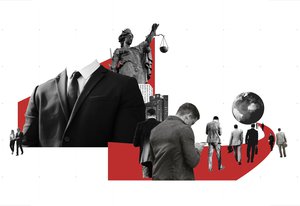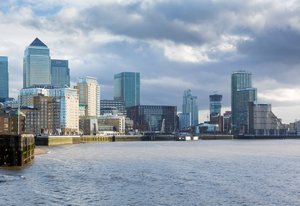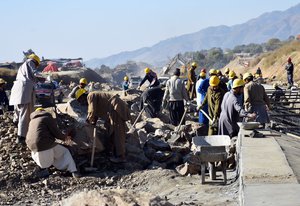Session three of The Corporate Citizen & COVID-19 examines the impact of multinational corporations on the environment, including looking at this issue from Indigenous story-telling perspectives. Expert panellists discuss how corporations are responding to the growing societal call for climate action and a green transition to a low-carbon economy. They consider how government and industry action in the coming months could strengthen environmental justice and shape a green, sustainable recovery from the COVID-19 pandemic.
Moderator:
- Janis Sarra, Professor, Peter A. Allard School of Law, University of British Columbia
Panellists:
- Darcy Lindberg, Assistant Professor, Faculty of Law, University of Alberta
- Sandra Odendahl, Vice President, Social Impact and Sustainability, Scotiabank
- Douglas Sarro, Bombardier Scholar and doctoral candidate, University of Toronto Faculty of Law
Written Summary of Session 3: Environment and the Corporation
By Veronica Cesario, Law Student, University of Ottawa
This panel series, The Corporate Citizen in the Time of COVID-19, was co-hosted by the Centre for International Governance Innovation (CIGI) and the University of Ottawa’s Human Rights Research and Education Centre (HRREC). Oonagh Fitzgerald, HRREC senior fellow, former director of international law at CIGI and editor of the new book Corporate Citizen: New Perspectives on the Globalized Rule of Law, welcomed participants, gave a land acknowledgement, thanked the co-sponsors, provided a brief overview of the book that inspired the panel series, and introduced the moderator for panel 3 on environment and the corporation, Janis Sarra. Janis Sarra is professor of law at the Peter A. Allard School of Law and founding director of the National Centre for Business Law, University of British Columbia. She is also a principal co-investigator of the Canada Climate Law Initiative and a Canadian investigator of the Commonwealth Climate and Law Initiative at the University of Oxford.
The panellists were Darcy Lindberg, Sandra Odendahl and Doug Sarro. Darcy Lindberg is an assistant professor with the University of Alberta’s Faculty of Law, where he teaches courses on constitutional law, Indigenous legal orders, treaties and Indigenous environmental laws. He is mixed-rooted Plains Cree, with his relations coming from Samson Cree Nation in Alberta and the Battleford area in Saskatchewan. Lindberg wrote the chapter “Wâhkôtowin and Restoring Humane Relationality within the Transnational Corporation” in Corporate Citizen. Sandra Odendahl is the vice president of social impact and sustainability at Scotiabank and has almost 25 years of experience in environmental science, corporate sustainability and responsible finance. Doug Sarro is a Bombardier Scholar and doctoral candidate at the University of Toronto Faculty of Law. He co-authored with Edward Waitzer the chapter “Climate Change: A New Bellwether of Corporate Accountability for Systemic Risks” in Corporate Citizen.
Sarra invited the panellists to discuss how multinational corporations are addressing their environmental impacts, and what governmental organizations and institutions are doing to strengthen corporate environmental accountability. Sarro focused on litigation as a tool for fostering corporate accountability and for demonstrating to corporate leaders where expectations and the law are moving. Litigation provides enough data points to see the movement from norms grounded in rationality to norms grounded in reasonableness. In their chapter in Corporate Citizen, Sarro and Waitzer discuss what reasonableness looks like in terms of corporate directors’ duties of care.
Lindberg suggested using Indigenous laws and the transnational context to think about corporate responsibility toward the land. Indigenous nations in Northern Canada and Alaska have highly developed legal systems and relationships with caribou that are relevant to corporate responsibility. We can look at their laws as examples of how to deal with transnational relationships. Odendahl discussed what financial institutions are doing to address environmental impacts. While banks are not themselves major polluters, they are enablers of the economy. Thus, banks can play an important role in financing new clean initiatives, focusing capital investments on clients that are moving the economy in the right direction, and compiling good information and research about what is happening in the environment.
The coronavirus disease 2019 (COVID-19) pandemic itself results from detrimental human impacts on the environment, and the human response to the pandemic is causing further detrimental impacts. The panel’s discussion moved to focusing on the role that corporations are playing with respect to the environmental and climate change dimensions of COVID-19. Sarro discussed how the pandemic has illustrated the fragility of the social and environment system upon which individuals and corporations depend. The COVID-19 pandemic has shown us that companies that have a clear corporate purpose both outperform those that do not and have been doing better at surviving during the pandemic. This shows the importance of corporations focusing greater attention on climate change and on how COVID-19 interacts with environmental issues.
Odendahl discussed how the pandemic has taken our attention off climate change and forced us to prioritize taking care of people. It has given us models of how to address some of the environmental challenges that will need our attention in the long run. There have been incredible examples of multi-sector partnerships, with one specific example being how Scotiabank worked with the City of Toronto and Shopify to help build websites for 100 small business owners. This project has since rolled out across the country.
Lindberg discussed the concern of Indigenous nations about the suspension of environmental regulations in provinces. Indigenous clean energy projects illustrate the importance of preventative production. Indigenous legal traditions operate in seasons, and this is a season to reassess: corporations should think about redefining their corporate purpose.
The third question the panel considered was about how governments and the corporate sector can work to strengthen socio-economic justice and shape a sustainable, low-carbon recovery from COVID-19. Lindberg discussed Indigenous governance relations and how it decentres nation-states. In British Columbia, there are a lot of Indigenous nations with clean energy products, which are built on strong relationships that protect the future and are profitable. The Haida Nation has agreements with government that acknowledge their differences on sovereignty but move forward to build relationships and partnerships.
Odendahl discussed how the pandemic has emphasized the power of the government working together with the private sector to effect change. The Pan-Canadian Framework on Clean Growth and Climate Change is a good climate change plan that should be embraced to build a green future. The framework’s innovation agenda includes more publicly funded research, tax incentives for private research and development, and funding for clean technology. Sarro discussed how important it is to try to change corporate law so that it fits environmental law into the broader corporate objectives, because problems are magnified if these two systems do not work together.
During the final portion of the session, the panel responded to questions from the audience. Lindberg discussed the challenge of moving away from corporate separateness toward relational responsibility to the environment and others. Lindberg stated that the jurisprudence needs to change and that there needs to be further exploration of how shareholders and other stakeholders can hold corporations to account. Acknowledging Indigenous legal traditions could be helpful in this regard. For example, Cree laws have a relational aspect such that there is no way to disassociate a person’s actions from the harms that they are doing to other people.
Odendahl answered a question about making it mandatory for companies to assess and report climate risks, agreeing that in theory that is a good idea, but noting the challenge that everyone has a different idea about what climate risk is. Sarro suggested courts could encourage corporations to take ownership of the green economic recovery. Odendahl suggested that consumers could become more assertive with their spending and not support corporations that are not environmentally-friendly.
In closing the discussion, Lindberg’s message focused on relationships and understanding the importance of our actions. Odendahl highlighted that different levers can be used to drive corporations and actors to pay attention to issues such as the environment. Sarro stated that corporate law needs to become a part of the solution to the climate crisis or else it is going to accelerate it. He suggested that there are now enough data points from litigation that corporate leaders can see where the law is going and get ahead of it.


